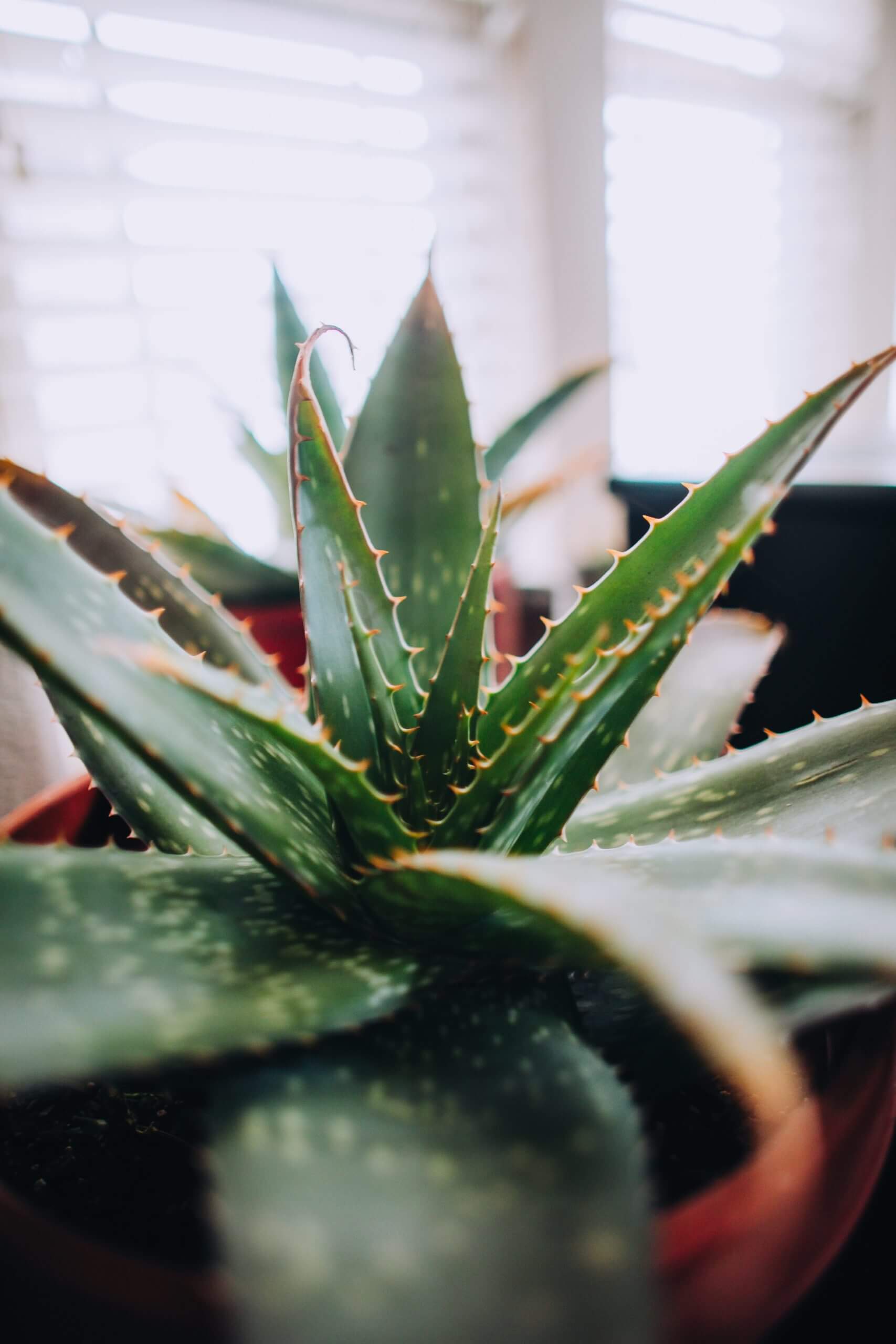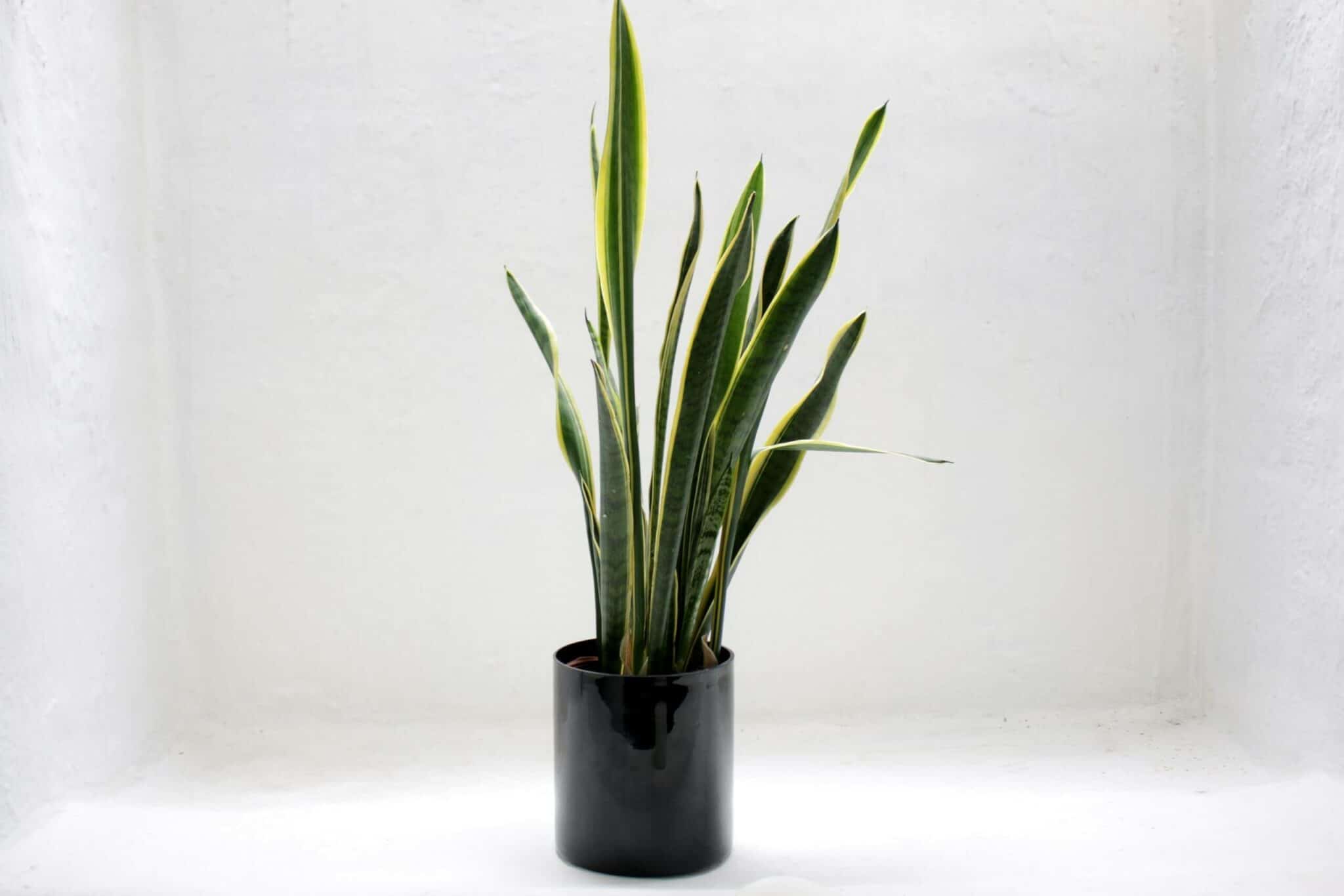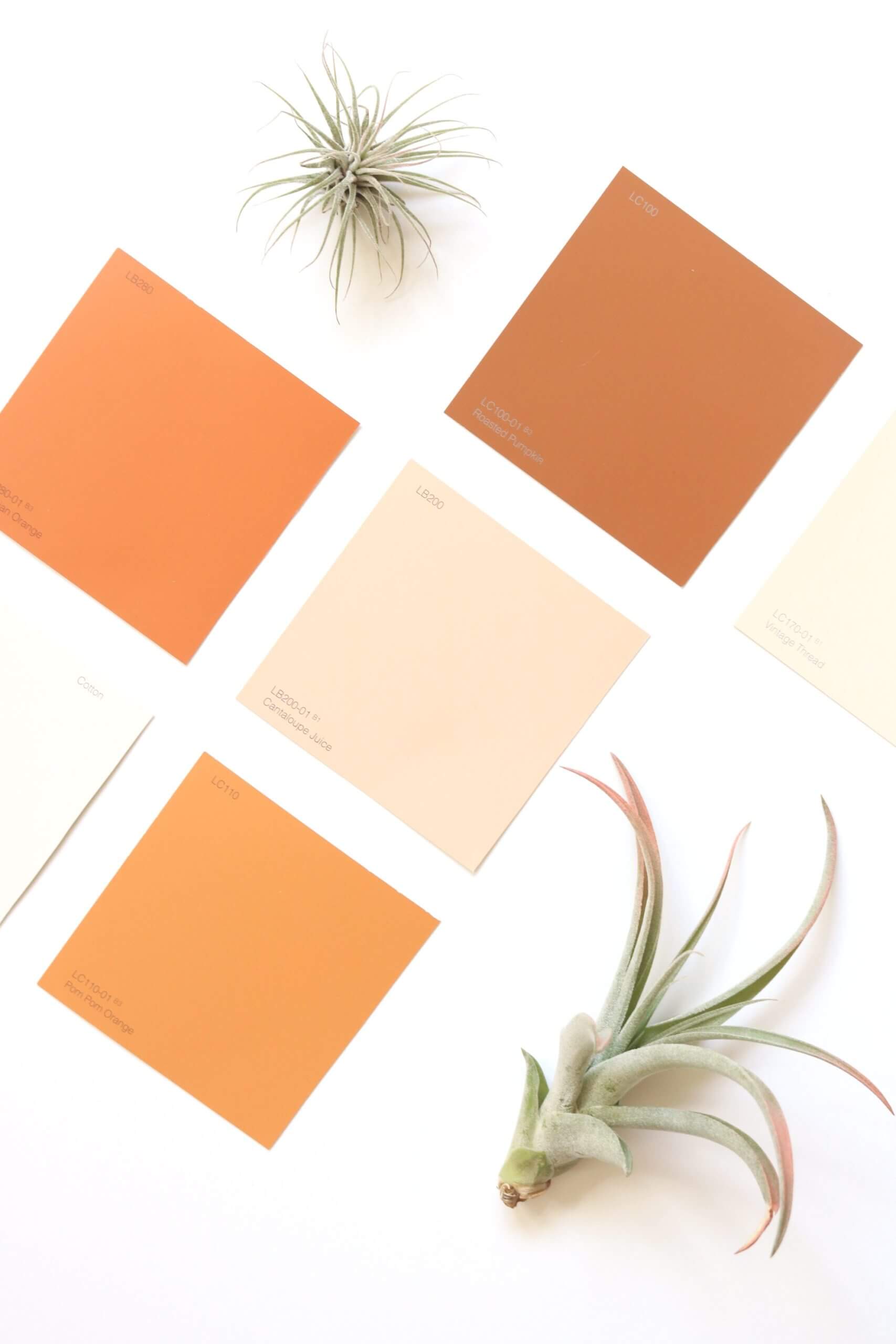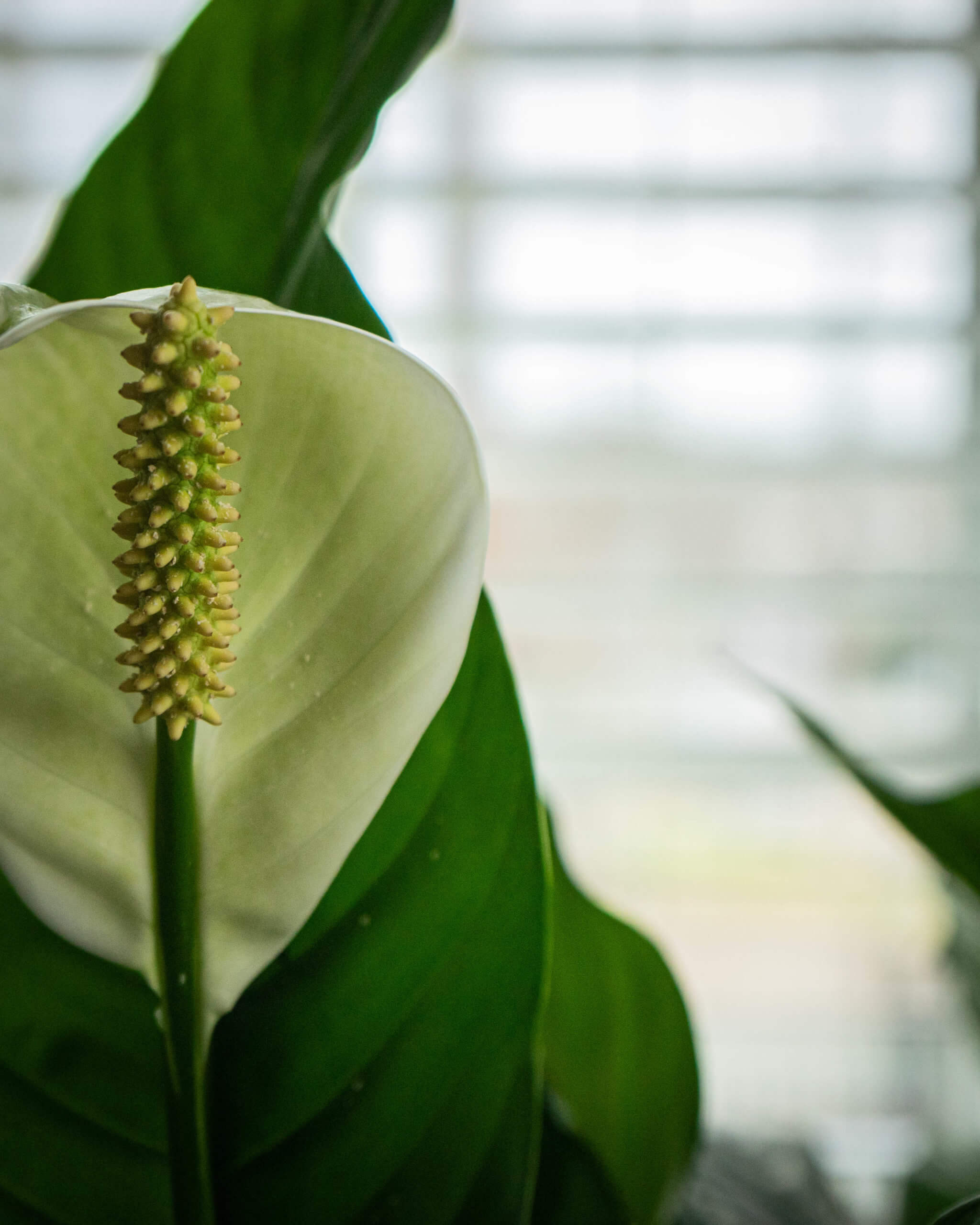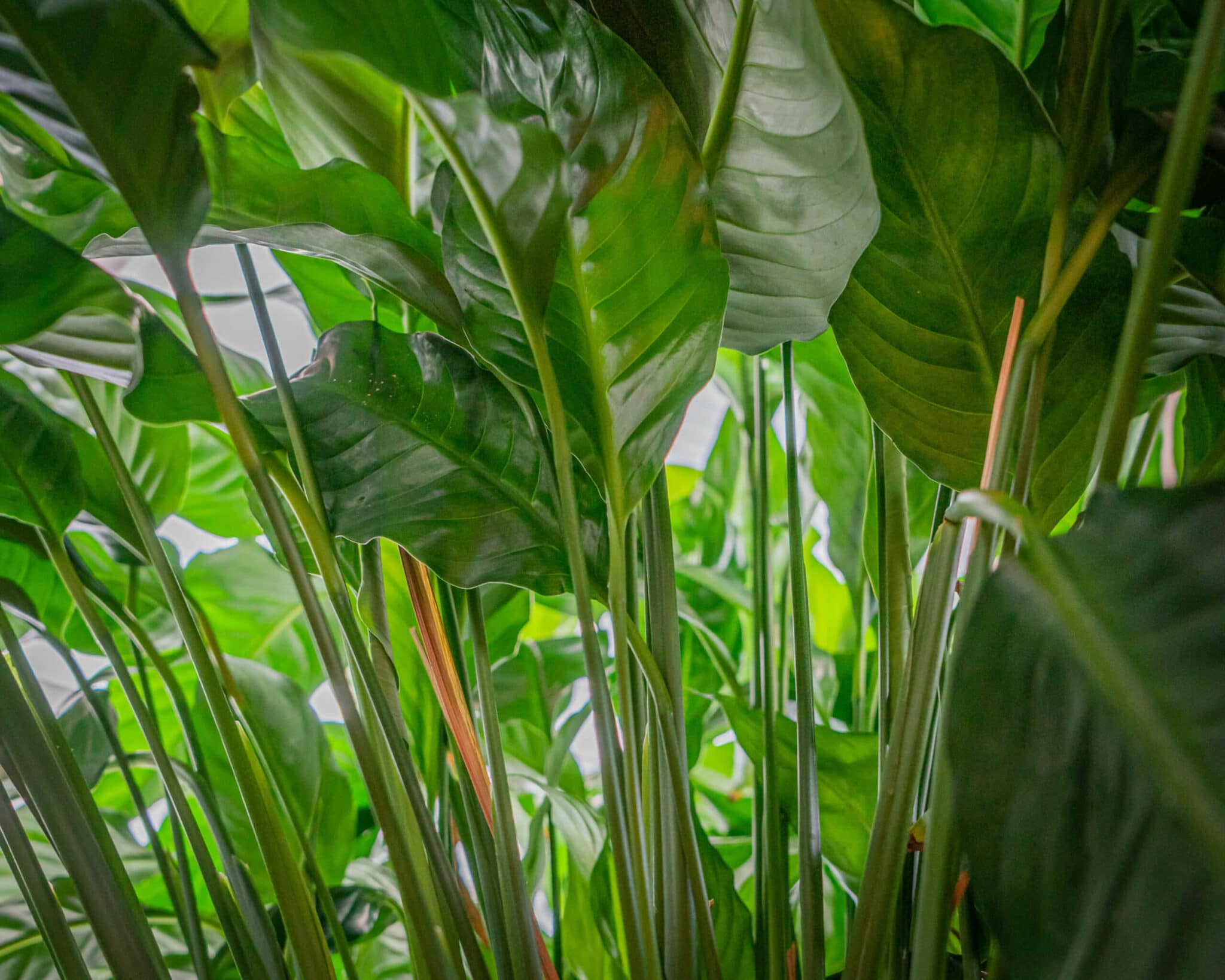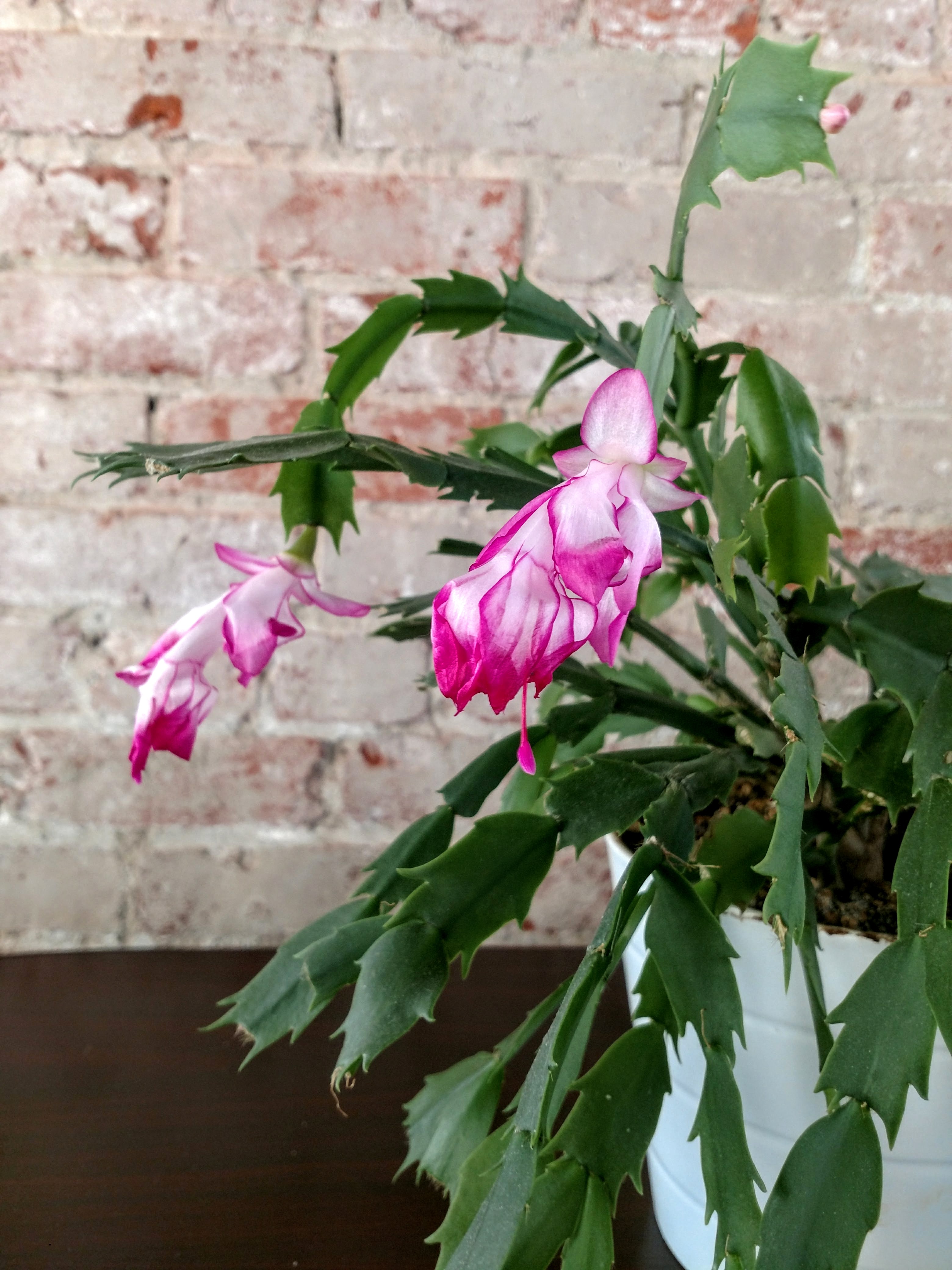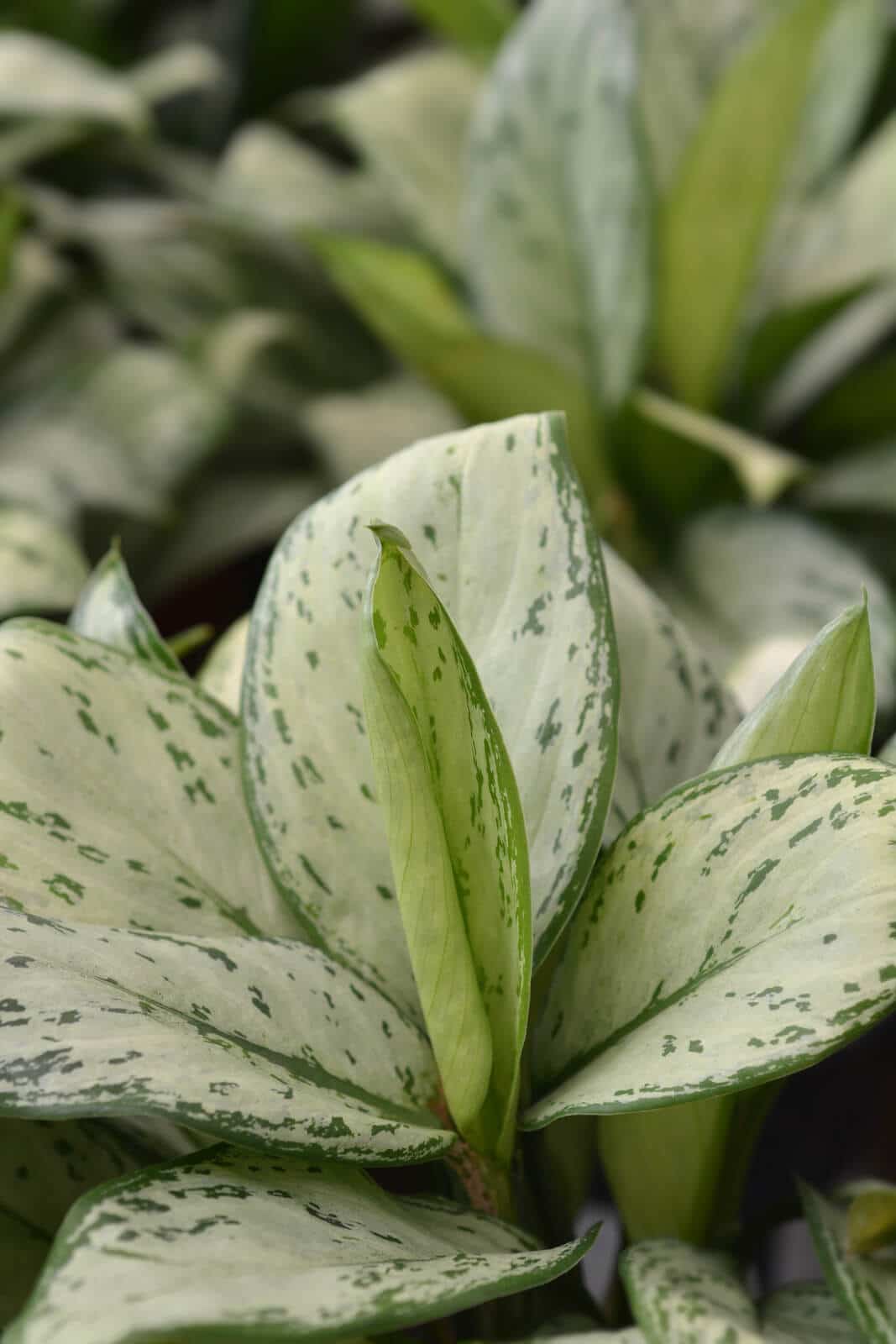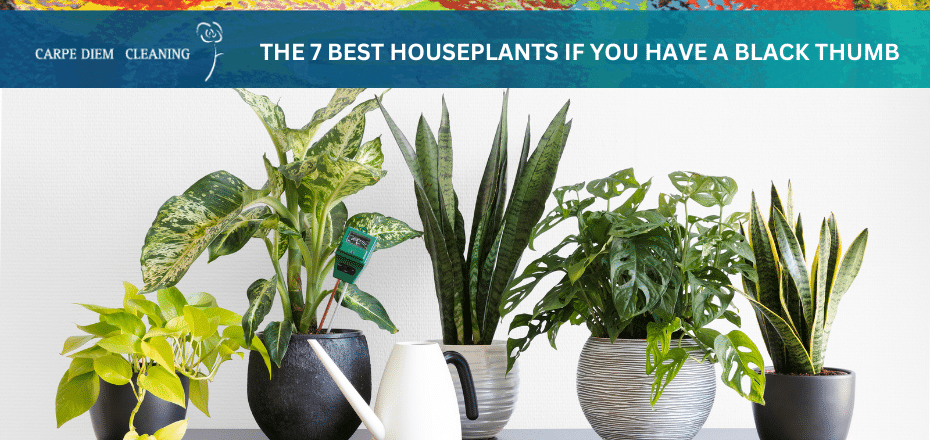
Do you want more plants in your life but can’t seem to keep them alive? Would you like to freshen up the air in your home with a living, breathing plant to reduce the toxin load on your family?
We love having houseplants in our office because of the life that it brings indoors! Our team member Rosa cares for all of the houseplants in our building, and we appreciate how she keeps all of our plants alive. Everyone of the plants with * have a home in our offices.
7 Easy-To-Maintain & Hard-To-Kill Houseplants
Spider Plants
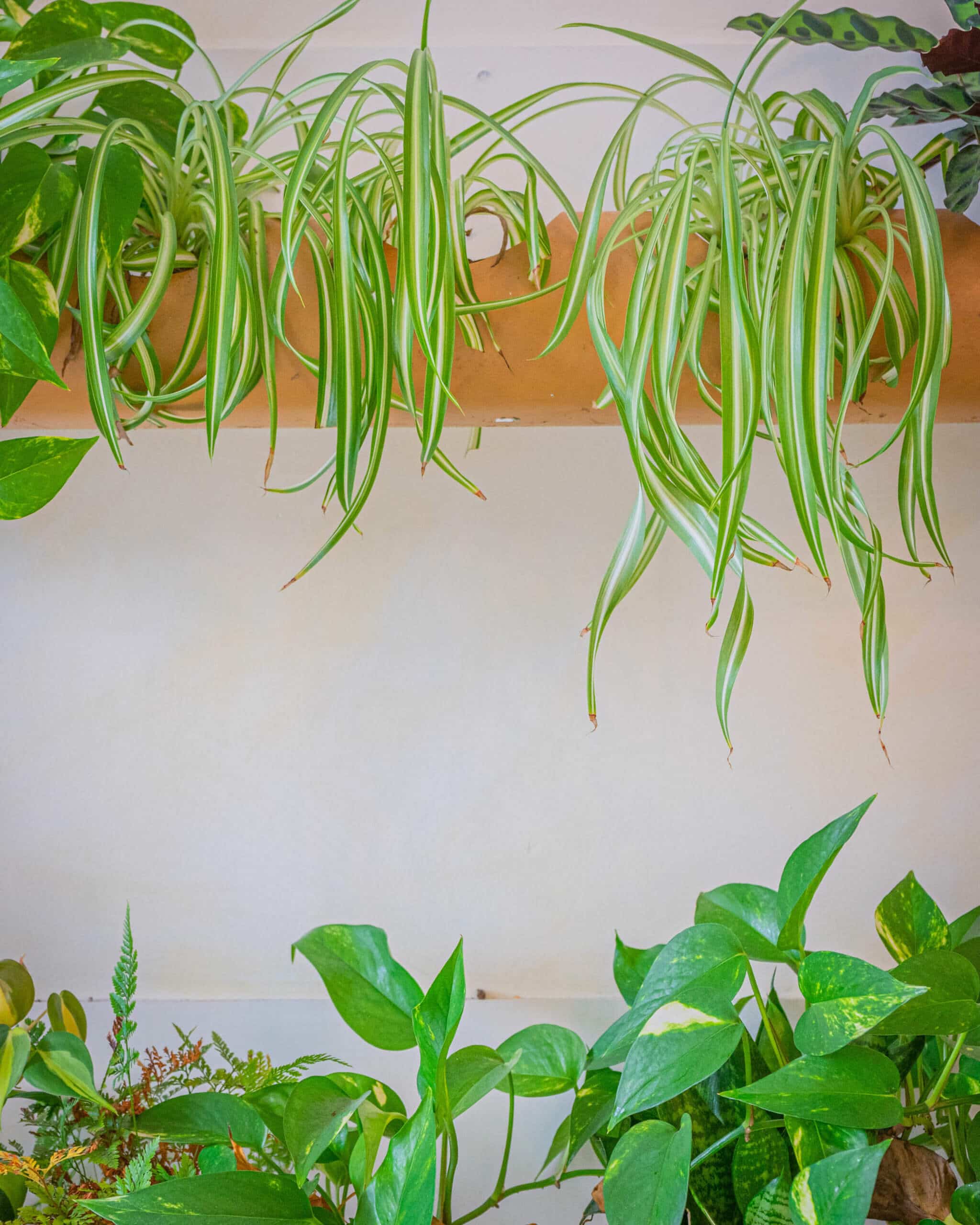
*Spider plants love medium to bright light and grow best in 60 to 75 degree weather — perfect for your home! These bright plants enjoy evenly damp soil.
Aloe Vera
Aloe Vera is one of the easiest plants to grow since it needs so little water. Keep this plant close to a window because it loves the light! You can use the gel in its leaves to sooth kitchen burns or sunburns year round.
Snake Plant (Mother’s-in-Law Tongue)
Snake Plants (or mother’s-in-law tongue) grow in a variety of lighting situations and tend to like dry soil. Once you can put your finger in the dirt and not feel any moisture, it’s time to water this plant!
Air Plants
Air Plants don’t require any soil! Soak these fun plants for a couple of hours once per week and simply spritz them with a spray bottle if they look like they’re drying out. They like sun, but too much direct light can dry them out.
Peace Lilies
*Peace lilies are beautiful plants that start small but can grow full and make a statement! Keep peace lilies in even, somewhat low light and keep the soil moist for optimal growing conditions.
Christmas Cactus
*Christmas cactus blooms in the winter with deep pink or red flowers. This cactus does best when watered infrequently and placed in a bright part of the room, though it will still grow in lower light.
Chinese Evergreen
Chinese Evergreen is a hardy plant that grows best over 60 degrees in low light areas. Make sure the soil is dry for a few days before watering and placing this plant in drafty areas in your home.
Durham Indoor Plant Nurseries
Wondering where to find these plants in Durham? Some of our favorite nurseries and garden centers are Pine State Flowers, For Garden’s Sake, and Durham Garden Center!
Give Your Home The Refresh You Deserve
Ready to refresh your home? Hire Carpe Diem Cleaning to help. We will clean your home so you can focus on the things that you love.
We offer weekly and monthly cleanings, move-in cleaning services, deep cleanings, and pop-in cleanings to help you keep your home clean year-round. Contact us for a free quote today.
Commonly Asked Questions About Houseplants
How often should I water my houseplants?
The frequency of watering your houseplants depends on the type of plant and its specific needs. Generally, most houseplants thrive with thorough watering when the top inch of soil is dry. However, it’s essential to research your plant species to ensure you’re meeting its requirements.
How do I remove dust from houseplant leaves?
To keep your houseplants healthy and looking vibrant, it’s important to dust their leaves regularly. You can do this by gently wiping the leaves with a soft, damp cloth. For smaller plants, a quick rinse in the shower can also be effective. Regular dusting helps the plant efficiently photosynthesize and breathe.
What’s the best way to clean pots and containers?
Before placing new plants in pots or containers, clean them with warm, soapy water and rinse thoroughly. This process removes any residual salts, chemicals, or pests. For added disinfection, soak the pots in a solution of one part bleach to nine parts water for 10 minutes, then rinse and air dry.
Can houseplants help improve indoor air quality?
Yes, houseplants can contribute to better indoor air quality by absorbing toxins, increasing humidity, and producing oxygen. Popular choices like spider plants, snake plants, and peace lilies are known for their air-purifying qualities.
How do I prevent pests on houseplants?
To deter pests, inspect your plants regularly and remove any insects by hand or with a gentle spray of water. If an infestation occurs, treat the affected plants with insecticidal soap or neem oil. Maintaining clean foliage and proper watering can also help prevent pest problems.
By addressing these common concerns, you can cultivate a cleaner, greener living environment, enhancing both the health of your houseplants and the overall quality of your home.

